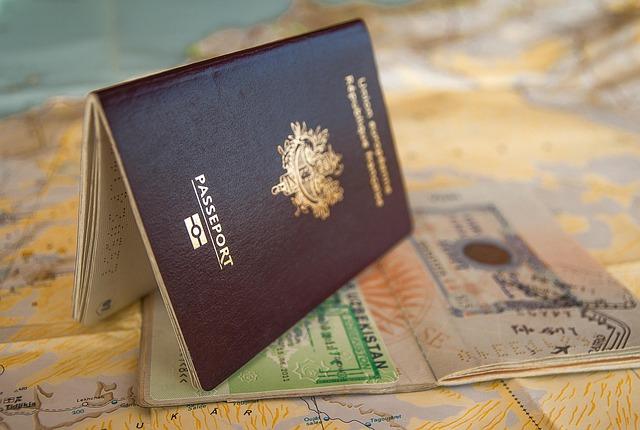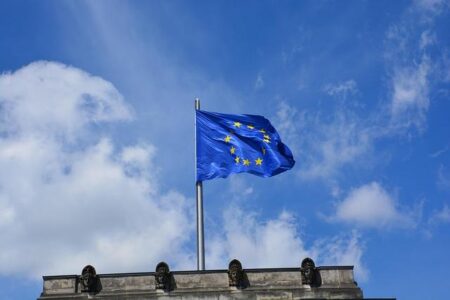The European Union has announced tightened visa restrictions on Russian nationals in response to ongoing security concerns linked to the war in Ukraine. The move reflects growing unease within member states over potential risks posed by increased Russian travel amid the conflict. The new measures, outlined by EU officials, aim to limit the flow of Russian citizens entering the bloc while reinforcing diplomatic pressure on Moscow. This development marks a significant escalation in the EU’s approach to the crisis, highlighting the intersection of security considerations and migration policy.
EU Implements Stricter Visa Controls on Russian Citizens Amid Ongoing Ukraine Conflict
In a decisive move reflecting growing concerns over security, the European Union has intensified visa application procedures for Russian nationals amid the protracted conflict in Ukraine. Authorities cite increased vigilance to address potential threats and illegal activities, including espionage and misinformation campaigns. This revamped protocol demands thorough background checks, extended processing times, and stricter scrutiny of applicants’ travel purposes.
Key measures introduced include:
- Mandatory in-person interviews for all visa applicants from Russia
- Enhanced collaboration between EU member states’ intelligence agencies
- Additional documentation required, such as proof of financial stability and detailed travel itineraries
| Previous Process | New Process |
|---|---|
| Standard background checks | In-depth security vetting |
| Online or postal applications accepted | Mandatory biometric data submission |
| Average 15-day processing time | Processing extended up to 45 days |
Security Concerns Drive Policy Shift as EU Cites Potential Threats from Russian Nationals
In a move signaling heightened vigilance amid ongoing geopolitical tensions, the European Union has implemented stricter visa protocols for Russian nationals. Officials cite not only the persistent conflict in Ukraine but also increasing concerns surrounding potential espionage and security breaches within member states. This policy adjustment narrows the scope of permissible entries, intensifies background checks, and introduces more rigorous screening processes aimed at intercepting individuals who might pose a risk to internal security.
The revised framework features several critical measures designed to safeguard EU interests:
- Extended Processing Times: Visa applications from Russian nationals will now undergo lengthier examination phases.
- Enhanced Intelligence Sharing: Member states will increase coordination and exchange of threat-related information.
- Targeted Entry Restrictions: Specific categories of visitors, especially those with ambiguous affiliations, face outright bans or conditional approvals.
| Policy Element | Impact |
|---|---|
| Visa Application Reviews | More thorough, with added security checkpoints |
| Cross-Border Surveillance | Increased collaboration among EU agencies |
| Document Verification | Utilization of advanced detection tools |
Experts Recommend Enhanced Screening and Diplomatic Engagement to Balance Security and Mobility
Security experts emphasize the necessity of refining visa screening processes to address emerging threats without undermining civil liberties or international cooperation. Enhanced background checks, biometric verification, and real-time intelligence sharing between EU member states are pivotal measures being advised to mitigate risks linked to potential security breaches. At the same time, they stress that these measures must be implemented with transparency to avoid fueling xenophobia or discrimination against innocent travelers.
Diplomatic channels also play a crucial role in maintaining a delicate balance between security and mobility. Engaging with Russian authorities through multilateral dialogues can help clarify intentions, reduce tensions, and create opportunities for safer, more controlled travel arrangements. Experts suggest the following priorities for policymakers:
- Strengthening regional cooperation on visa issuance and border monitoring.
- Establishing clear protocols to differentiate between genuine travelers and potential threats.
- Facilitating humanitarian travel with expedited but secure visa processes.
| Priority Area | Recommended Action |
|---|---|
| Screening Procedures | Implementation of biometric vetting |
| Information Sharing | Real-time intelligence platforms |
| Diplomatic Engagement | Regular multilateral meetings |
| Humanitarian Concerns | Streamlined visa processes |
The Conclusion
As the European Union moves forward with tightened visa restrictions on Russian nationals, the measures underscore the ongoing geopolitical tensions stemming from the conflict in Ukraine. While aimed at mitigating potential security risks, these policies also signal a broader shift in EU-Russia relations, reflecting the complex challenges facing the region. Observers will be watching closely to see how these developments influence diplomatic dynamics and the day-to-day movements of individuals caught in the crossfire of international disputes.




